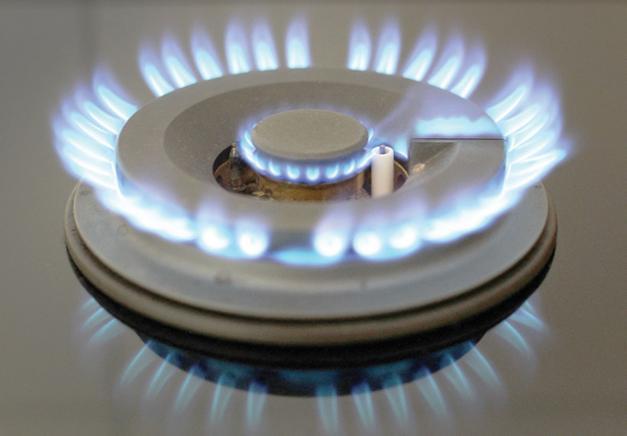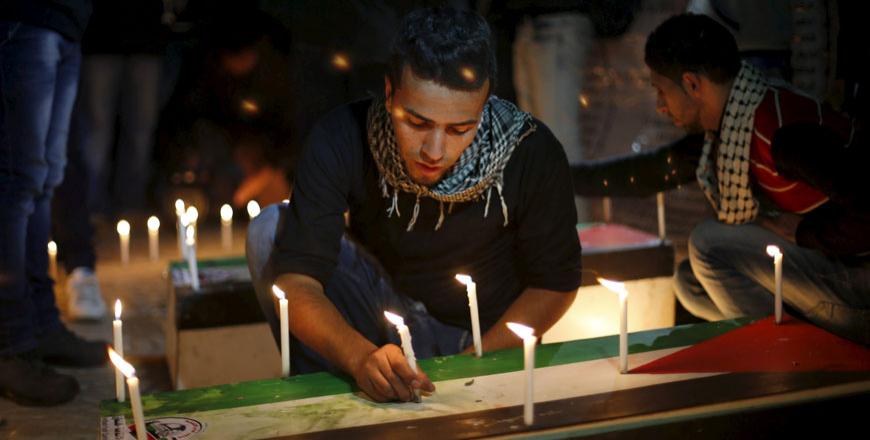You are here
Turkey row leaves Russia stuck with abandoned gas pipes worth billions
By Reuters - Dec 03,2015 - Last updated at Dec 03,2015
MOSCOW — Gas pipes worth 1.8 billion euros ($1.95 billion) are to be left stranded on the shores of the Black Sea after Russia's decision to suspend work on the Turkish Stream pipeline, a potent symbol of Moscow's falling out with Ankara.
Russia has set out to punish Turkey after it shot down a Russian warplane in Syria last week, imposing trade sanctions and releasing data it claims proves Turkish President Recep Tayyip Erdogan is involved in illegal oil deals with Daesh.
Russian Energy Minister Alexander Novak told reporters on Thursday work on Turkish Stream, a pipeline intended to pump Russian gas into southeastern Europe via Turkey while bypassing Ukraine, had been suspended.
Shortly afterwards, the head of Italian oil major Eni, slated as one of the main buyers for the pipeline's gas, said the project was dead in the water.
The decision leaves Russian energy giant Gazprom with kilometres of pipes only useable in the Black Sea.
It ordered pipes from as far afield as Japan and Germany for the 2,400-kilometre South Stream pipeline, originally slated to open in 2018, which were then reassigned to Turkish Stream after the project was axed.
Industry sources said the pipes can only be used for projects in the Black Sea because of their specialised construction. Gazprom will now be forced to put the pipes in storage until tensions between Moscow and Turkey subside.
"These pipes were calibrated for a specific environment, pressure and capacity," said one source in the pipe-making industry. "Accordingly, they are only suitable for underwater pipelines in the Black Sea."
Gazprom was not available for comment.
Aborted predecessor
Although freezing work on Turkish Stream is largely symbolic, it has long been beset by delays and doubts over its viability, the financial implications for Gazprom are very real.
Sberbank analyst Valery Nesterov said Gazprom has spent between $12-14 billion on Turkish Stream and its aborted predecessor South Stream, which was abandoned last year in the face of European Union (EU) opposition and heightened tensions over the Ukraine crisis.
Questions have also been raised over the planned Nord Stream pipeline to Germany after a group of 10 European governments published a letter saying the project ran counter to EU interests and risked destabilising Ukraine.
"Again, the company is rapidly building a pipeline which might not be needed," said Nesterov.
Russia is one of the world's largest steel pipe producers, second only to China, and has the capacity to turn out more than 3 million tonnes of the large-diameter pipes typically used in major energy projects every year.
Russia's largest pipe maker, TMK, said Turkish Stream could be revived in the future.
"Turkish stream, as a project, is not completely finished," said TMK Vice-President Vladimir Shmatovich. "Maybe in a year or two, when the tension decreases, it will be realised. But the pipes could lie on the ground for 50 years."
Separately, Turkey's leaders have mounted a charm offensive among regional energy producers in an effort to diversify supplies as relations with major natural gas provider Russia crumble.
President Erdogan and Prime Minister Ahmet Davutoglu have travelled to key energy partners Qatar and Azerbaijan respectively this week in an effort to avert any economically damaging disruption in energy supplies as winter sets in.
Putin described the downing of the warplane as a war crime on Thursday and said the Kremlin would punish Ankara with additional sanctions. Russia has already banned some Turkish food imports and left trucks carrying Turkish exports stranded at its borders.
But Russia could deal a real blow by reducing gas supplies, a move broadly seen by analysts and Turkish officials as unlikely for now but which could seriously hurt the Turkish economy and for which Ankara is drawing up contingency plans.
"There is indeed a crisis right now... We are exploring how we can offset this," a Turkish energy official said. "Davutoglu and Erdogan have personally taken the initiative to make sure Turkey doesn't experience a problem in terms of energy supplies."
Ankara buys nearly 60 per cent of its total gas needs, around 27 billion cubic metres (bcm), from Russia via two main pipelines, which enter Turkey through the Marmara region, the country's industrial hub which includes Istanbul, its biggest city, and the most sensitive area to any disruption in supply.
"The Marmara region buys almost all of its gas from Russia and this region makes up 40 per cent of Turkey's gross domestic product as well as its energy consumption," indicated FACTS Global Energy consultant Cuneyt Kazokoglu.
"If Russia cuts gas, it would effectively be shutting down the Marmara region and that would seriously hurt Turkey," he said, adding he did not expect Moscow to take such a step as it would break a "contractual obligation".
Not enough LNG capacity
Buying gas from Turkmenistan and boosting supplies from Iran, already Turkey's second largest supplier, are among the options being considered, energy officials said. Bringing supplies from northern Iraq is another possibility.
Davutoglu visited Azerbaijan on Thursday with the aim of increasing gas imports through the Trans-Anatolian Pipeline (TANAP), a key project due to bring 16 billion cubic meters of gas to Europe. Around 6bcm of that is destined for Turkey.
Speaking in Baku, Davutoglu said Turkey and Azerbaijan had agreed to complete the project before the original target date of mid-2018.
Earlier this week, Erdogan visited Qatar to explore the possibility of buying more liquefied natural gas (LNG) cargoes from its Gulf Arab ally.
But Turkey's insufficient storage capacity and the heavy dependence of its business on regular natural gas mean any boost in LNG imports would only partially make up for lost Russian gas, according to Turkish think-tank TEPAV.
"The most important element of establishing supply security in countries which have a high dependence on natural gas imports is to have a storage capacity equivalent to 20 to 30 per cent of consumption. In Turkey, that is 6 per cent," TEPAV researcher Aysegul Aytac wrote in a recent note.
Nearly half of Turkey's power generation is sourced from natural gas, leaving households and industry vulnerable to any disruption, she said.
"The insufficiency of using alternative products in both industry and power generation as well as the inflexibility of households to use anything other than gas mean problems could be inevitable in the medium term," she added.
Related Articles
Turkey inaugurated a $10 billion project to pipe Azeri gas to Western markets on Tuesday, forging ahead with a plan which could help Europe reduce its dependence on Russian energy even as Moscow touts its own alternative.
LONDON — European gas prices soared to a new record high at the close of trading on Friday after Russia's Gazprom announced that the Nord St
ANKARA — Turkey sees no normalisation in ties with Israel unless its conditions for ending the Gaza blockade and compensation for the deaths

















